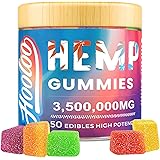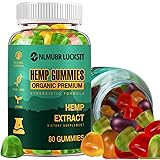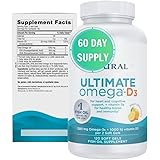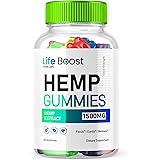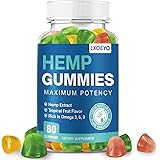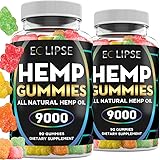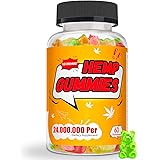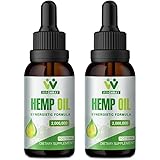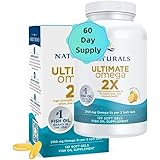Ever found yourself staring at two beard oils, one promising the wonders of CBD and the other highlighting hemp seed oil, and wondering if there’s actually a difference beyond the price tag? If so, you’re not alone. The world of cannabis-derived products can feel like a labyrinth of jargon and misleading marketing, especially when it comes to ingredients for personal care. The video above does an excellent job of demystifying the core distinctions between these two popular ingredients. Let’s dive deeper into the nuances, expanding on the foundations laid by Dan C Bearded, to help you make informed choices for your magnificent mane.
The Hemp Renaissance: Understanding the Legal Framework and Key Terms
First off, it’s crucial to understand the legal backdrop that has allowed hemp-derived products to flourish in recent years. The 2018 Farm Bill marked a pivotal moment in the United States, federally legalizing the commercial production of hemp. This was a significant shift from previous legislative hurdles, such such as the 1937 Tax Act and the 1980 Controlled Substance Act, which had historically lumped hemp in with its intoxicating cousin, marijuana. This legal distinction hinges entirely on one critical component: Delta-9-tetrahydrocannabinol, or THC.
When we talk about “hemp” versus “marijuana,” we are referring to varieties of the same plant species, Cannabis sativa L. The key differentiator lies in their THC content. Hemp plants are legally defined as having less than 0.3% THC by dry weight, a trace amount far too low to produce any psychoactive effects. Marijuana, on the other hand, contains 0.3% THC or more, often reaching much higher concentrations, sometimes upwards of 30% in cultivated strains. This understanding is foundational to grasping the differences between CBD oil and hemp seed oil.
1. **Hemp Cultivation:** Typically grown outdoors, often larger in stature, and managed with less intensive control, focusing on high yield for fiber, seeds, or CBD extraction. 2. **Marijuana Cultivation:** Often grown indoors in highly controlled environments, allowing for optimization of cannabinoid and terpene profiles, resulting in smaller, denser plants with higher THC concentrations.
From Plant to Product: Decoding the Source and Extraction Methods
Next, we’ll explore where these two distinct oils come from on the hemp plant and how they are processed. This is where the core difference truly emerges, much like extracting juice from an apple versus crushing its seeds for oil; both come from the same fruit, but offer entirely different compositions and benefits.
Hemp Seed Oil: A Nutritional Powerhouse from the Seeds
As its name suggests, hemp seed oil is derived solely from the seeds of the hemp plant. The process is remarkably straightforward: the seeds are cold-pressed. This mechanical method involves applying significant pressure to the seeds to physically squeeze out the oil, similar to how olive oil is often produced. The resulting oil is typically clear to dark green with a nutty flavor and is packed with nutritional value. Importantly, because it comes from the seeds, hemp seed oil contains little to no THC and virtually no CBD.
- **Source:** Hemp seeds.
- **Extraction:** Cold pressing.
- **Primary Compounds:** Rich in essential fatty acids (Omega-3 and Omega-6), vitamins (E, B complex), and minerals.
CBD Oil: The Cannabinoid Powerhouse from Leaves and Flowers
In stark contrast, CBD (cannabidiol) oil is primarily extracted from the leaves, flowers, and sometimes the stalks of the hemp plant, where the cannabinoid compounds are concentrated. Getting CBD out of these plant parts is a more complex and intensive process than simply cold-pressing seeds. The most common and effective method is CO2 extraction, which uses pressurized carbon dioxide to separate CBD and other cannabinoids from the plant material. This method ensures a pure, potent extract, but it’s also why CBD oil tends to be significantly more expensive to produce than hemp seed oil.
- **Source:** Hemp leaves, flowers, and stalks.
- **Extraction:** Primarily CO2 extraction (though other solvent-based methods exist).
- **Primary Compounds:** Cannabidiol (CBD), other cannabinoids (CBG, CBN), terpenes, and flavonoids.
THC and the “High”: Addressing Common Misconceptions
Moving on, let’s address the elephant in the room: the concern about THC and whether using these products will lead to a psychoactive effect or a failed drug test. This is where widespread misinformation often causes confusion.
1. **Hemp Seed Oil and THC:** There is essentially zero THC in hemp seed oil. Since it’s extracted from the seeds, which contain negligible amounts of cannabinoids, you won’t experience any psychoactive effects or risk a failed drug test from using pure hemp seed oil products.
2. **CBD Oil and THC:** This is where it gets a bit more nuanced. Federally legal CBD oil derived from hemp is permitted to contain up to 0.3% THC. While this trace amount is present in what’s known as “full-spectrum CBD oil” (meaning it contains a full range of cannabinoids and terpenes found in the plant), it is not enough to get you high. As Dan C Bearded hyperbolically but effectively illustrates, you’d need to consume an absurd amount—like 600 bottles of beard oil—to even theoretically approach a level where you might feel any intoxicating effects or fail a drug test from this minute amount of THC. For topical application in beard products, the absorption of THC into the bloodstream is even less significant. It’s important to note that “broad-spectrum CBD” contains all cannabinoids *except* THC, and “CBD isolate” is pure CBD with no other compounds, including THC.
The bottom line for beard care: using CBD oil (especially full-spectrum) topically will not get you high, nor is it likely to cause you to fail a drug test. The amount of THC is simply too minuscule to have a systemic effect through skin absorption.
The Benefits Breakdown for Beard Care: A Head-to-Head Comparison
Now, let’s compare the practical benefits of these two oils specifically for your beard and the skin beneath it. While both offer advantages, understanding their strengths will help you choose wisely. Think of it like comparing a good amateur athlete to a professional Hall of Famer: both are great, but one operates at a higher level.
Hemp Seed Oil: The All-Star Carrier
Hemp seed oil is an excellent carrier oil for beard care, revered for its nourishing properties. Its rich profile of Omega-3 and Omega-6 fatty acids is perfect for moisturizing both hair and skin. These essential fatty acids act as emollients, helping to lock in moisture, reduce dryness, and impart a healthy sheen to your beard. It’s also a respectable anti-inflammatory, helping to soothe irritated skin beneath the beard.
- **Moisturizing:** Deeply hydrates beard hair and the underlying skin, preventing dryness and flakiness.
- **Nutrient-Rich:** Provides essential fatty acids and vitamins for overall hair and skin health.
- **Mild Anti-Inflammatory:** Helps calm minor skin irritation, redness, and itchiness.
CBD Oil: The Hall-of-Fame Performer
While hemp seed oil is a fantastic foundational ingredient, CBD oil steps up the game, offering similar benefits but with enhanced efficacy. Its primary strength lies in its potent anti-inflammatory properties. Inflammation of the skin underneath your beard can stem from various sources: environmental stressors like sun and wind, everyday pollutants, a less-than-ideal diet, or even aggressive grooming. When this skin becomes inflamed, blood flow to the hair follicles can be restricted, potentially hindering healthy beard growth and leading to issues like beard itch or “beardruff.” CBD works by interacting with the body’s endocannabinoid system, helping to regulate inflammation and promote a healthier environment for hair growth.
Furthermore, CBD oil can help balance sebum production, the natural oil produced by your skin. Too much sebum can lead to greasy skin and clogged pores, while too little can result in dryness and irritation. CBD helps normalize this, contributing to a more balanced and healthy skin barrier beneath your beard.
- **Superior Anti-Inflammatory:** Significantly reduces skin inflammation, fostering optimal conditions for hair growth and reducing discomfort.
- **Sebum Regulation:** Helps balance oil production, preventing both excessive greasiness and dryness.
- **Antioxidant Properties:** Protects skin and hair from environmental damage.
- **Soothing:** Provides enhanced relief for irritated or sensitive skin, making it excellent for managing common beard-related skin issues.
In essence, if you’re looking for general nourishment and light anti-inflammatory action, hemp seed oil is a superb choice. But if you’re dealing with persistent irritation, significant dryness, or want to maximize the therapeutic potential for skin health and beard vitality, CBD oil offers a more powerful solution.
Making an Informed Choice: Cost, Quality, and Certification
Finally, understanding the price disparity and quality indicators is paramount for navigating the market. As mentioned in the video, CBD oil is typically far more expensive than hemp seed oil, a direct reflection of its complex extraction process and the demand for its therapeutic compounds. This cost difference, unfortunately, has led to a good deal of “mismarketing,” where companies attempt to pass off less expensive hemp seed oil as CBD oil.
When purchasing CBD oil for your beard, vigilance is key. Here’s what to look for:
1. **Certificate of Analysis (COA):** This is your most crucial tool for verifying product quality. A COA is a third-party lab report that confirms the cannabinoid content (including CBD and THC levels) and screens for contaminants like pesticides, heavy metals, and residual solvents. Reputable companies will readily provide a COA for each batch of their CBD products, often accessible via a QR code on the packaging or on their website. If a company cannot provide a COA, consider it a major red flag.
2. **Ingredient List:** Always read the label. For genuine CBD oil, you should see “cannabidiol,” “hemp extract,” or “full-spectrum hemp extract” listed. If the only ingredient related to hemp is “hemp seed oil” or “cannabis sativa seed oil,” you are purchasing hemp seed oil, not CBD oil.
3. **Source Transparency:** Look for brands that are transparent about where their hemp is grown and their extraction methods. Many high-quality CBD products originate from hemp grown in the US, particularly after the 2018 Farm Bill opened doors for domestic cultivation under strict regulations.
4. **Price Point:** Be wary of suspiciously cheap “CBD oil.” The intensive extraction and testing processes for quality CBD simply do not allow for rock-bottom prices. If it seems too good to be true, it probably is. The investment in genuine CBD oil often reflects the quality and efficacy you can expect.
Understanding the clear distinctions between CBD oil and hemp seed oil empowers you to make smarter choices for your beard care routine. Both are valuable, but they offer different benefits derived from different parts of the hemp plant through different processes. Whether you opt for the nourishing versatility of hemp seed oil or the enhanced therapeutic potential of CBD oil, ensure you’re choosing products from reputable sources that prioritize quality and transparency. Have you experienced the benefits of either of these oils in your grooming regimen, or do you have further questions about their application? Share your thoughts and experiences in the comments below!


